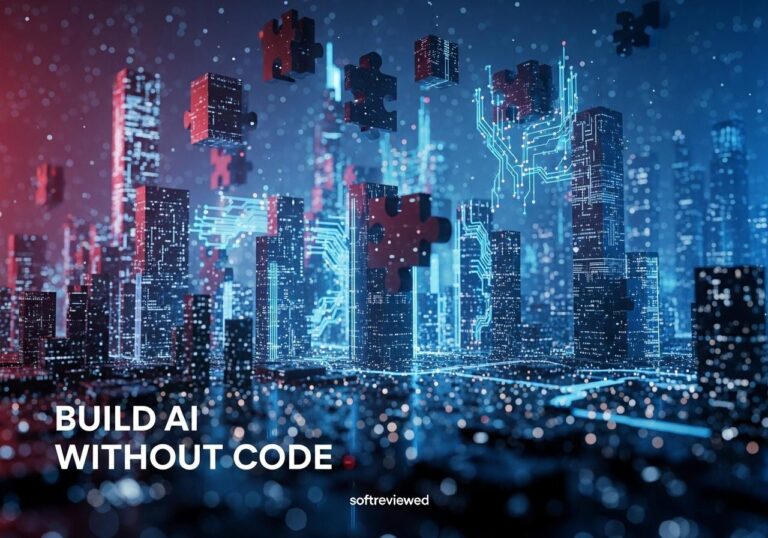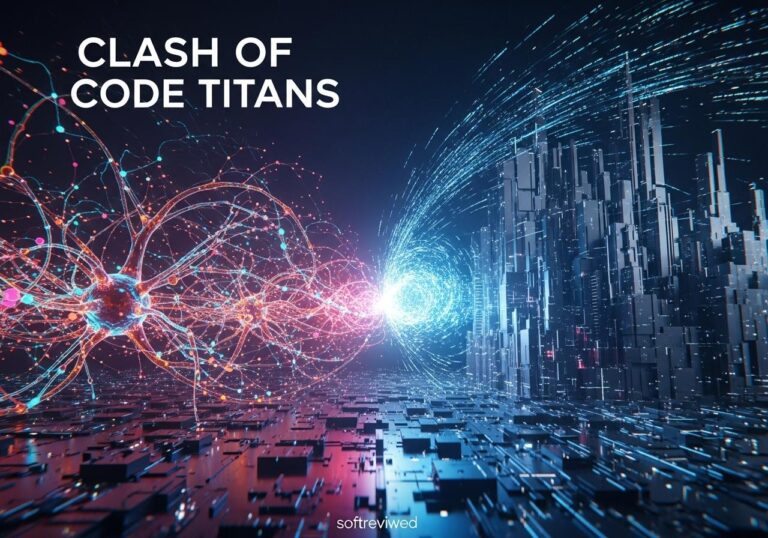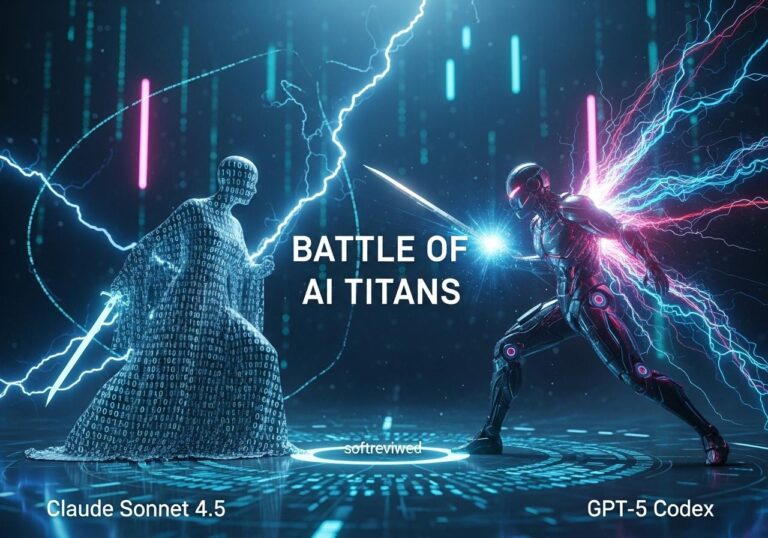Model Control Protocol (MCP): Revolutionizing AI Integration
A standardized protocol that transforms how AI models interact with data sources, driving innovation and interoperability
Simplifies AI/Data Integration
MCP replaces fragmented custom integrations with a universal protocol connecting AI models to data sources, streamlining development and implementation processes.
Industry Shift to Standardization
OpenAI’s adoption signals growing consensus on shared protocols, streamlining AI development and collaboration across the entire artificial intelligence ecosystem.
Enhanced AI System Capabilities
MCP enables real-time data access, improving context-aware AI agents across enterprise systems, coding tools, and cloud services with richer, more relevant interactions.
Reduces Development Costs/Risk
Standardized SDKs lower barriers for developers to build agentic systems, leveling the playing field for startups and enterprises with consistent implementation methods.
Accelerates AI Innovation
MCP’s open architecture enables rapid integration with tools like GitHub, Slack, and Google Drive, fostering cross-domain use cases that were previously challenging to develop.
Promotes Interoperability
MCP creates a common language for AI/data interaction, critical for solving complex challenges in healthcare, coding, and enterprise automation with seamless connectivity.
OpenAI Joins Forces with Anthropic: A New Era for AI Data Access
In a move that's turning heads across the tech world, OpenAI, the powerhouse behind ChatGPT, has announced its adoption of the Model Context Protocol (MCP), a standard originally developed by its rival, Anthropic. This isn't just a minor update; it's a significant step towards a more interconnected and efficient future for artificial intelligence. The adoption of MCP signals a fundamental shift in how AI models access and utilize data, promising enhanced capabilities for AI assistants and streamlined development processes. This collaboration between two AI giants could redefine the future of AI data access.
The Great AI Connector: What is the Model Context Protocol (MCP)?
So, what exactly is this Model Context Protocol (MCP) that's causing such a stir? 🤔 At its core, MCP is an open-source standard designed to create a seamless bridge between AI models and the vast, often disparate, data sources they need to operate effectively. Think of it as a universal language that allows AI to converse with databases, APIs, and other information repositories without needing custom-built connections for each one.
A Universal Translator for AI
In the world of AI, different data sources often speak different "languages". Previously, integrating an AI model with a new tool or data repository required building a unique connection, a bit like needing a different adapter for every electronic device. MCP acts as a universal translator, 🌐 providing a standardized way for AI models to access and interact with a variety of data sources. This simplifies the process and makes it easier for AI to operate effectively with the information they need. Instead of creating custom integrations every time, developers can now use this standard protocol, dramatically reducing time and complexity.
How MCP Actually Works: The Nuts and Bolts
MCP functions using a client-server architecture. Here’s a simplified breakdown:
- MCP Servers: These act as data gateways, exposing tools, resources, and prompts to AI applications. They use a standardized interface.
- MCP Clients: These are AI-powered applications, like chatbots or intelligent assistants, that connect to MCP servers. They use a lightweight messaging protocol (JSON-RPC 2.0) to communicate with the servers.
👉 In practice, an AI client connects to an MCP server, discovers available tools, and then requests data or executes functions based on user input. This structured approach ensures secure and consistent communication between AI systems and external systems. - Standardized Communication: MCP relies on JSON-RPC 2.0 for clear, consistent messaging between clients and servers.
- Tool Discovery: Clients can explore available tools on MCP servers, making it simple to use various data sources and functions.
- Data Security: MCP includes mechanisms to control access to data and ensure secure data sharing.
Why This is a Big Deal: Breaking Down the OpenAI-Anthropic Partnership

OpenAI's decision to adopt MCP, a standard championed by its competitor, Anthropic, is a significant development with wide-ranging implications. It’s not just about technical compatibility; it’s about reshaping how the AI industry collaborates and innovates.
The Problem MCP Solves
Before MCP, AI models often operated in silos, struggling to access the real-time and diverse data they need to provide accurate and relevant responses. Each data source had its own unique language and method of interaction. This made building intelligent, data-driven AI applications time-consuming, costly, and complex. MCP addresses this issue head-on, providing a standard mechanism for these connections.
A Pragmatic Shift, Not a Capitulation
This move by OpenAI isn't a sign of defeat, but rather a pragmatic acknowledgement of the benefits of open standards and collaboration. It reflects a growing consensus that interoperability is vital for advancing the field of AI. By embracing MCP, OpenAI is positioning itself to take advantage of the tools and services being built around this standard. It’s a strategic move that could lead to more powerful and versatile AI applications.
Real-World Impacts: How MCP Will Change AI
The adoption of MCP will have a tangible impact on the way AI is developed and used, transforming how AI applications interact with the world.
Smarter AI Assistants
With MCP, AI assistants can access a broader range of real-time data, leading to more contextually relevant and accurate responses. Imagine ChatGPT having immediate access to current market data, news feeds, and user-specific information, allowing it to provide more tailored and helpful responses. 📌 This will lead to a more seamless and natural user experience.
- Real-time Data Access: AI assistants can fetch up-to-the-minute information.
- Contextual Understanding: Improved ability to provide accurate and relevant responses based on current context.
- Personalized Experience: Greater capacity to tailor interactions for individual users.
Streamlined Development
MCP dramatically simplifies the process of integrating AI models with various tools and data sources. Developers no longer need to build custom integrations for each connection. Instead, they can leverage the standard protocol to enable their applications to access necessary information, thereby reducing development time and costs. ✅ This means developers can focus more on creating innovative AI solutions, rather than wrestling with complex connection issues.
- Faster Development Cycles: Quicker integration times allow developers to launch new features rapidly.
- Reduced Costs: Less need for specialized integration expertise lowers development expenses.
* Focus on Innovation: Developers can focus on creating unique AI solutions, rather than working on connectors.
Enhanced Interoperability
One of the most significant impacts of MCP is the enhanced interoperability it provides. By establishing a common standard for AI data connections, MCP makes it easier for different AI platforms and tools to work together. This will foster a more collaborative and interconnected AI ecosystem, encouraging developers to create applications that can seamlessly interact with a variety of services. 🚀
* Cross-Platform Compatibility: AI tools from different vendors can communicate more easily.
* Ecosystem Growth: Enables developers to build powerful apps by combining different components.
* Collaboration: Fosters a more connected and collaborative AI environment.
The Ripple Effect: MCP's Impact Across the AI Landscape
Beyond the immediate benefits, the adoption of MCP has the potential to reshape the entire AI landscape, impacting developers, businesses, and the way AI technology evolves.
Broader Adoption
With OpenAI, a major industry player, now on board, MCP's chances of becoming a widely adopted standard have significantly increased. This is great news for the AI community. More companies embracing MCP will foster a thriving ecosystem around it, driving even more innovation and collaboration. 👉 This will lead to more diverse and readily available AI tools.
* Increased Tool Diversity: A growing ecosystem of tools and services will become available.
* Faster Innovation: Standardization enables developers to rapidly build on top of existing infrastructure.
A Standardized Future?
The integration of MCP signals a possible trend toward standardization within the AI industry. If more companies follow suit, it could mark a move away from proprietary systems toward more open and collaborative approaches. ⛔️ This, in turn, might lead to increased trust and wider adoption of AI technologies. It could also foster a more level playing field, allowing smaller players to compete more effectively.
Here's a quick comparison of AI data access before and after MCP:
| Feature | Before MCP | With MCP |
|---|---|---|
| Data Access | Custom connections for each source | Standardized protocol for all sources |
| Development | Time-consuming and costly | Faster and more affordable |
| Interoperability | Limited cross-platform interaction | Seamless integration |
| Innovation | Slower due to connection issues | Faster due to ease of integration |
Challenges and Considerations
While MCP offers numerous benefits, it is also important to acknowledge some challenges and considerations:
- Adoption Hurdles: Full industry adoption may face challenges with legacy systems and proprietary technologies.
- Security Concerns: Ensuring secure data access and transmission with MCP is paramount.
- Scalability: The MCP infrastructure must be able to scale effectively to meet the needs of increasing AI demand.
How Are OpenAI’s Model Improvements Influencing the Merger of X and xAI?
OpenAI’s continuous model improvements are reshaping the landscape of AI collaboration and development. As companies look to enhance their capabilities, unpacking musk’s x and xai merger motivations reveals a strategy to leverage cutting-edge technology. This merger aims to amplify innovation, drive competitive advantage, and create a more interconnected AI ecosystem.
Expert Voices: What Industry Leaders are Saying
The opinions of experts provide valuable insights into the significance of this development and its potential implications for the future of AI.
Anthropic's Perspective
Anthropic's Chief Product Officer, Mike Krieger, expressed his excitement about OpenAI's adoption of MCP. In an X post, he stated that he was "excited to see the MCP love spread to OpenAI." He added, "LLMs are most useful when connecting to the data you already have and software you already use." This reflects Anthropic’s view that collaboration and interoperability are key for advancing AI.
Industry Analysts' Views
Industry analysts suggest that OpenAI's adoption of MCP is a pragmatic and strategic move. By embracing this open standard, OpenAI can better leverage the rapidly growing agent ecosystem. As one analyst at TechTarget's Enterprise Strategy Group pointed out, "A standard is when the community agrees that this is what we're going to do, and it's collaborative." This suggests that MCP's open-source nature and its potential to become a community-driven standard will be essential to its wider success.
Looking Ahead: What's Next for MCP and AI Connectivity?
The adoption of MCP is just the beginning. As AI technology continues to evolve, we can expect further innovation and integration in how AI systems interact with data.
The Road Ahead
Moving forward, expect to see increased adoption of MCP by more companies. This will further solidify the protocol as a standard for connecting AI models to data. Additionally, the industry will likely see further development of new tools and services built on top of the MCP framework. This can also lead to new applications of agentic AI across various industries. The focus will be on refining and improving the MCP to make AI systems even more capable.
A More Connected AI Future: Wrapping it All Up
OpenAI's embrace of Anthropic's Model Context Protocol marks a pivotal step toward a more interconnected and efficient AI ecosystem. By adopting an open standard for AI data connectivity, OpenAI has not only improved its own capabilities but has also fostered a more collaborative environment. This is likely to benefit developers, businesses, and ultimately users of AI technologies. The move signals a positive trend towards interoperability in AI, paving the way for a future where AI systems work more seamlessly together, empowering a more connected and capable AI experience. You can learn more about the Model Context Protocol on the official Anthropic website.







